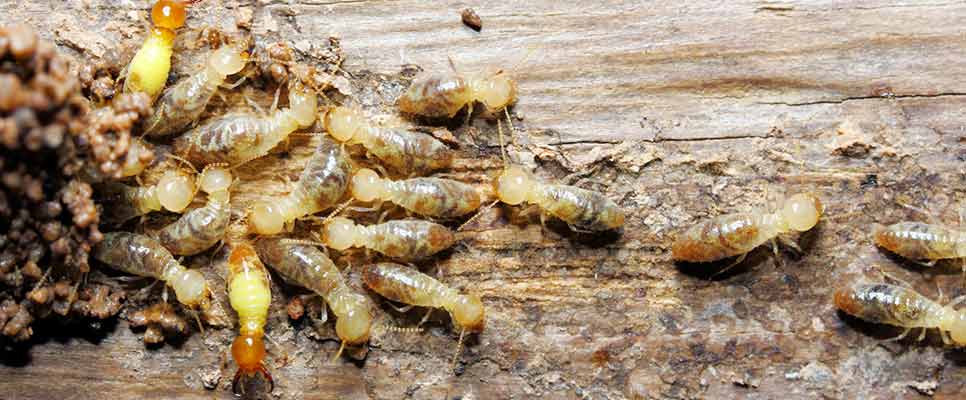The biggest fear for a homeowner is a termite infestation. Because they are small, but they are wood-eating bugs as well and they can seriously affect your home. And, in future, you would have to deal with expensive home stuff repairs. Well, prevention is the best option. You can protect your house from these bugs by using some amazing tips and tricks. In this blog, we will study some useful practical strategies for keeping your house free of termites and infestations.

Practical Ways To Prevent Termite Infestation in Home
Here are some useful ways, with them you can prevent termite infestation. So, read and get rid of the termite issues from your property.
Ventilation and Moisture Removal
According to the research, termites usually prefer to survive in damp surroundings. So, always try to keep proper ventilation in your home dry. By doing this, you can repel them like a pro. Also, you should check your plumbing system. Or, if you find any leaks, repair them immediately both inside and outside your home. Proper drainage and plumbing will help you in preventing moisture accumulation or removal. To reduce the humidity level around your home, you can use dehumidifiers. You try this technique in moist areas like crawl spaces and basements.
Keep Firewood And Lumber Away From Your Home.
If you store firewood, lumber, or other cellulose-based goods near your home, you need to be alert. Because it can be possible that there is a termite infestation in your home. So, it is better to use elevated platforms. With this, you can avoid direct contact with the dirt and keep these items away from your home.
Keep a Gap Between Between the Soil and the Wood
Always install a physical barrier between the wooden portion of your home. Termites love wood that is in contact with the ground. To avoid this, provide at least a 6-inch gap between the soil and any timber siding, fences, or decks. If you think it’s essential, you may also build concrete or metal barriers to keep termites at bay.
Do Regularly Check-Ups for Termite Signs
To avoid termites, early discovery is essential with regular termite pest inspection. Check your property frequently for evidence of termites, such as mud tubes, wings left behind, or harmed wood. Well, you can pay attention to any spots where wood and earth converge because termites frequently enter via these openings. Well, consult a pest control specialist ASAP if you think there could be an infestation.
Steer Clear Of Overmulching And Planting
Gardening and mulching can help your property’s curb appeal. Adding too much mulch or planting too close to the foundation, on the other hand, may encourage termites to grow. So, keep mulch away from your home’s structure and consider termite-controlling options.
Use Building Materials That Are Resistant To Termites
When building or rebuilding your home, utilising termite-resistant materials is always the best choice. You can try treated wood, concrete, or steel to get superior termite control results. These materials are less attractive to termites and can provide an additional layer of protection.
Installing Physical Barriers
Termite barriers can be built as a preventative measure or during building construction. Physical termite barriers, you can install in the ground close to the home’s foundation, such as metal mesh or plastic sheeting. Termites will find it challenging to enter your home because of these barriers.
Arrange for Regular Professional Inspections
It is advisable to arrange routine expert termite inspections even if you haven’t seen any symptoms of termites. Experts in pest control can spot problems early on that homeowners might miss. Additionally, they can offer suggestions for preventive actions that are very useful to your particular circumstance related to termite issues.
Apply Termite-Resistant Chemicals to Wood
Apply termite-resistant chemicals to wooden areas of your home, such as beams and framing. By installing a protective barrier, these treatments stop termites from invading the wood.
Seek Professional Guidance And Care
Don’t try to treat a termite infestation on your own if you believe you have one or have proof of one. Without expert help, eliminating termites can be difficult. A certified pest controller can determine the level of the infestation and apply practical treatments like soil treatments or bait systems.
Know the Termite Species in Your Neighbourhood
Termite species have a variety of habits and activities. Understanding the many species of termites that exist in the area you live in is essential. Knowing this can help you select the most suitable preventative measures for the local termite species.
Learn About the Biology of Termites
Having a basic understanding of termite biology is always helpful when you need termite removal. So, if you are looking for termite control, always learn about their habitats, behaviours, and life cycles. You may use this information to help you spot weak spots of termites around your property.
Maintain Termite Activity Records
Also, keep track of any termite treatments, inspections, and problems that develop over time. For recording the history of termite activity on your property and assuring continuing preventative actions, this paperwork might be helpful.
Our Words Before We Apart
Finally, we expect from you that you have proper knowledge about termite infestation and you know the tips for controlling termites. Because termite control is a proactive and necessary aspect of any house upkeep. This will help you to reduce the potential termite damage in your home. Furthermore, keep in mind that termites are nasty creatures. Routine inspections and professional advice will be needed to keep a termite-free property. You may save money in a variety of ways by following the directions and tactics, we have provided to keep your home termite-free. This will also give you proper peace of mind to you.
